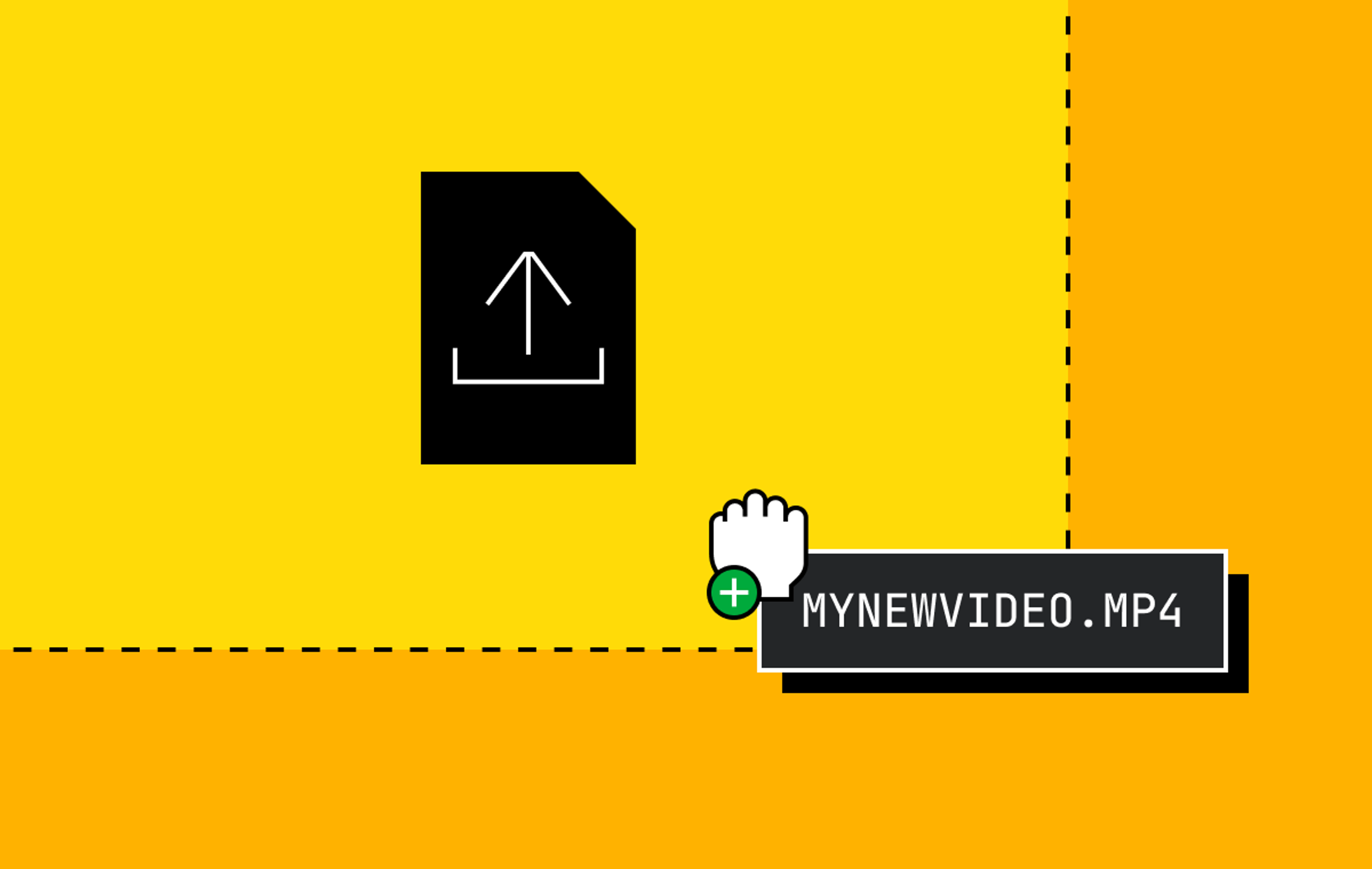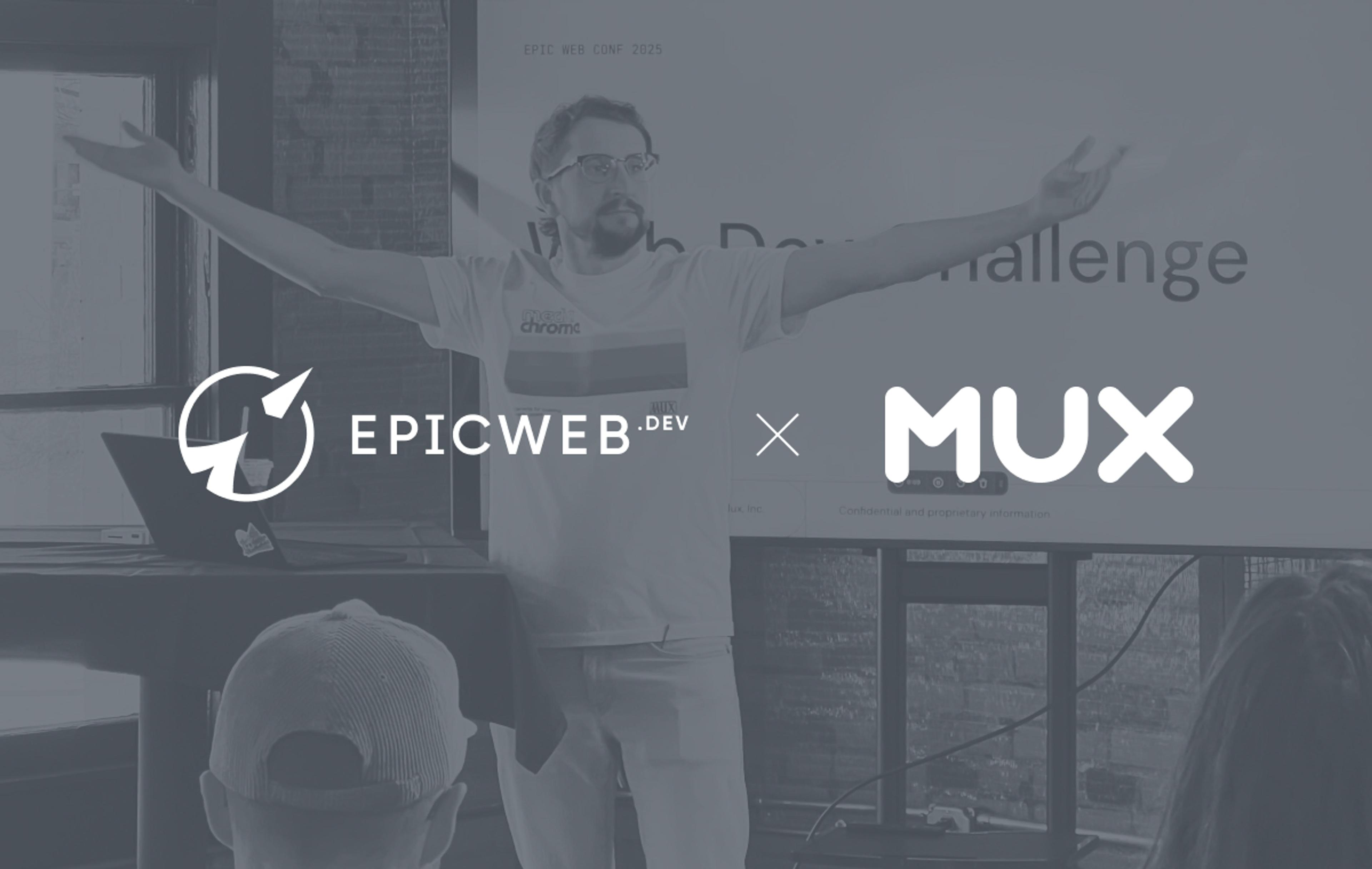At some point in the journey from a small startup to a mid-sized one, you may look around and realize, “Wow! There are a bunch of people here from different walks of life, and many share background experiences or common interests with me! We should get together and compare notes. Maybe even form some kind of group? For sharing resources with other employees?” Thus, an ERG (which stands for Employee Resource Group) is born, springing fully formed from a dozen like-minded heads!
If only it were that easy. In reality, bringing together an ERG requires organization, commitment, and clear goals.
Recently, Mux began its journey into ERGs. As a result, we co-founded the first ERG at Mux — Organized Marginalized Genders, or OMG. This is how we did it, what it took, and what we learned along the way. Whether your company is just starting to noodle on ERGs or is well underway with that work, we hope sharing our experience imparts lessons and takeaways that help you and our broader community, too.
What is an Employee Resource Group?
ERGs are company-supported groups built around shared identities or experiences. They’re often, but not always, formed along lines of marginalization: gender, race, disability, sexual orientation, faith, economic background, age, veteran status, and more. They offer support and community for employees and act as a source of advocacy for issues and policies that pertain specifically to that group.
It’s a well-researched fact that diverse teams make better business decisions, but to be diverse, a company must first be equitable and inclusive. Thirty-seven percent of job seekers won't even consider companies with disparities in employee satisfaction among different racial groups, or between men and women. What’s the difference between the terms diversity, equity, and inclusion, you might ask? In the context of a workplace:
- Diversity: You can look around and see a full cross-section of humanity in the room.
- Equity: A company is cognizant of and counteracts inequitable social constructs, and none of the areas in which you may be privileged or marginalized will advantage or disadvantage your work and career.
- Inclusion: Whatever your background, privileges, and/or marginalizations, people like you are well represented at all levels of a company, and you feel safe and empowered to speak up from the unique point of view of your intersecting identities.
Equitable policies and an inclusive culture are necessary to build a diverse and talented team that can work at their full potential. Fair pay and promotion opportunities allow a company to recruit and retain top talent. Psychological safety allows people to bring their full selves to work, driving innovation and breaking echo chambers.
Depending on the company and the group, an ERG may focus on improving some or all components of Diversity, Equity, and Inclusion (DEI). For instance, an ERG might:
- Help the company de-bias hiring processes
- Host recruiting events targeted toward its community
- Organize internal events to network and build community within the company
- Advocate for policies or benefits useful to the group
- Provide a forum for members to discuss shared issues
- Advise the company on public positions, marketing, and communications
Since ERGs are employee led, their activities should be tailored to the interests of their members. Focus areas will differ from ERG to ERG, depending on the concerns of their target demographics, and between companies even within the same larger community. At a tech giant, an ERG’s membership might be massive, but organization and consensus-building become challenging, and the inertia of a large company restricts fast changes. In contrast, an ERG at a startup might be more effective despite its modest size, since it’s far easier to exert influence on the direction of a smaller company. Neither is better or worse, but it’s helpful to set realistic expectations for yourself and the other members of the group.
OMG!
At Mux, one of our company values is Be Human: “As a company, we want to read, learn, and act together in ways that build community.” In accordance with this value, the company decided to boot up its ERG program in the spring of 2021. The People team surveyed employees to discover what shared interests and identities might support an ERG, which communities might want an ERG, and who would be interested in joining or leading one. Then they recruited leaders to start building those groups.
The three of us — an engineer (Ellen), a recruiter (Lindsay), and a product analyst (Dori) — signed up as possible leaders for a Women’s ERG. Armed with a list of interested peers and advice from DEI consultants, we discussed:
- What are our values as an ERG?
- Do we see ourselves as more of a social group or a more serious advocacy group?
- What are our guidelines for healthy interactions within our ERG?
- What does the ERG owe its members, and what do the members owe the ERG?
- Should members be required to attend a certain number of events?
- How many (and what type of) events should the ERG do? And at what cadence?
- Should we be open to allies or a closed members-only group?
- Do we want our ERG’s focus to include other underrepresented genders?
- Who should our executive sponsor be?
We needed to hammer out both the high-level philosophy and the nuts-and-bolts logistics of our new ERG. Through long sessions on a shared Google Doc, we eventually came up with a draft charter and a list of questions, which we brought to prospective members for feedback and discussion. As part of that conversation, the Women’s ERG turned into the more inclusive Organized Marginalized Genders: the OMG ERG.
Once we had our survey results about the ERG’s values, meeting cadences, event ideas, and responsibilities, we finalized the OMG ERG charter.
The purpose of the OMG ERG is to foster relationships between members, provide opportunities and support in developing members’ careers, and help improve the experience of people of marginalized gender at Mux, in the tech industry, and in the wider world.
We wanted a trustworthy ally and accomplice, not necessarily a member, to be our advocate to leadership, so we asked our COO, Salman Kothari, to represent us as OMG ERG’s executive sponsor. For a protected discussion space, we started a members-only Slack channel for organization, conversation, and networking.
We had our ERG; now came the hard work of running it.
Roadblocks
Soon after the charter was approved, the ERG faced two major challenges:
- In June, Roe v. Wade was overturned, affecting U.S. members’ access to safe and legal abortions.
- In October, like many other tech companies, Mux went through a round of layoffs, affecting some members of the ERG.
The first use for OMG ERG’s private Slack channel and members-only meetings was as a safe space to discuss the ramifications of the decision to overturn Roe v. Wade. ERG members from the benefits team explained ways in which the decision might affect members and their families, and members from the legal team explained how to advocate and organize without stepping into liability.
Mux didn’t offer a reimbursement benefit for traveling out of state for health care, as some companies immediately did. This concerned some members — until it was pointed out that leaving a documented trail for this would expose personal health data. Our People team wasn’t able to immediately react, but they did research compliant ways to support affected members through other means. Having space to come together for an honest discussion reassured members that the ERG and company cared and were working thoughtfully to address these issues. We were able to have fruitful discussions and understand the nuances as a group more clearly.
When the tech layoffs hit Mux, we, like everyone else, were disappointed and worried. It’s common for marginalized employees to be disproportionately impacted by layoffs — last hired, first fired, as the trope goes — and then have to face a job market still rife with unconscious bias.
In order to address this concern, OMG ERG organized two back-to-back events. First, we invited members who worked in Legal and HR to lead a town hall discussion explaining the processes used to prevent bias from affecting layoff decisions, how the reduction impacted diversity at the company, and the limits of what could be legally considered. Then, we took the list of affected OMG members who were willing to accept help in finding a new role and held a synchronous LinkedIn recommendation-writing drive.
The truth is that HR and Legal can sometimes be seen as adversarial to ERGs. Any advocate knows the frustration of having their proposed initiatives slowed for legal review, or the disappointment of asking for data from HR only to be turned down for privacy concerns.
For an ERG to be effective and successful, the company’s Legal and HR teams must be willing partners. This requires an extension of trust and transparency on both sides. When the ERG asks for something legally impossible, the response should be: “We can’t do that, exactly, but tell us what you’re trying to accomplish, and let’s see if we can find another path to our shared goal.”
Fail to foster this relationship, and the ERG risks becoming ineffective and toxic.
The path forward
As we closed out a wild 2022, OMG ERG turned its focus to low-key social events. We ran a mini-terrarium building event and held our first in-person meeting in January. In a fully remote-equal company like Mux, it’s both challenging and important to build social connections.
Next year, we hope to host more ambitious events and partner with some of the other ERGs that are spinning up at Mux, such as the LGBTQIA and Sustainability ERGs. There’s been interest in hosting external speakers or internal panels, as well as career-building workshops for public speaking and presenting. We intend to continue building momentum, community, and belonging over time, iterating and improving on OMG ERG itself as we grow.
Founding and running an ERG is both a surprising amount of work and deeply rewarding. With supportive company leadership and committed partners across other organizations, an ERG can improve cohesiveness and belonging. From a personal development standpoint, taking a leadership role in an ERG is a huge opportunity for individual contributors to learn valuable organizational and management skills, and for managers to expand their leadership beyond their day-to-day responsibilities.
If you see the space and the support for an ERG at your company, go build one!
*Thank you to our Sr. Office Manager, Midnight, for this magnificent acronym





